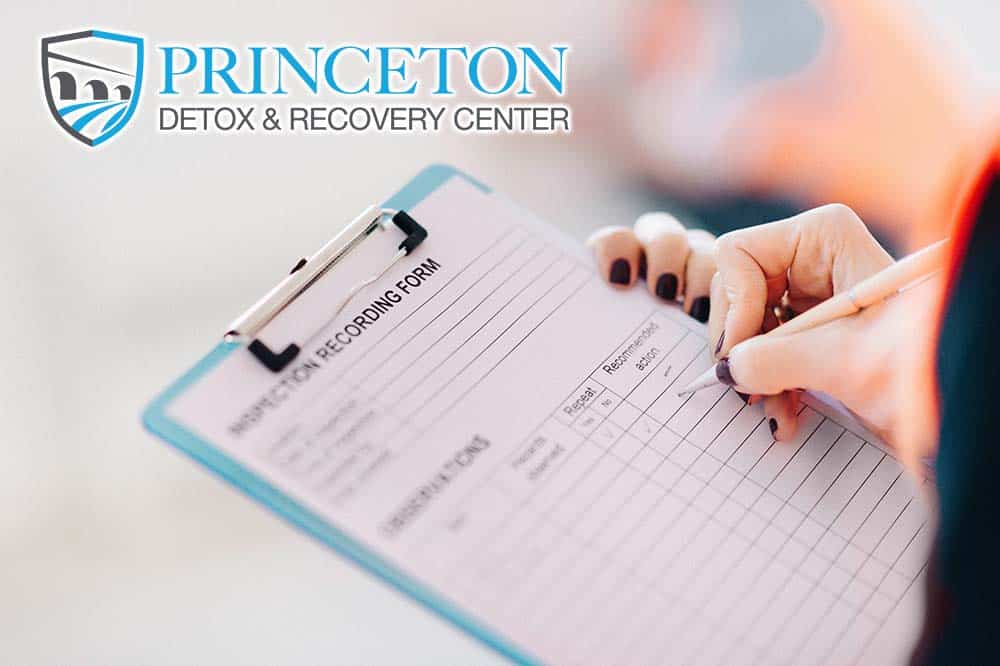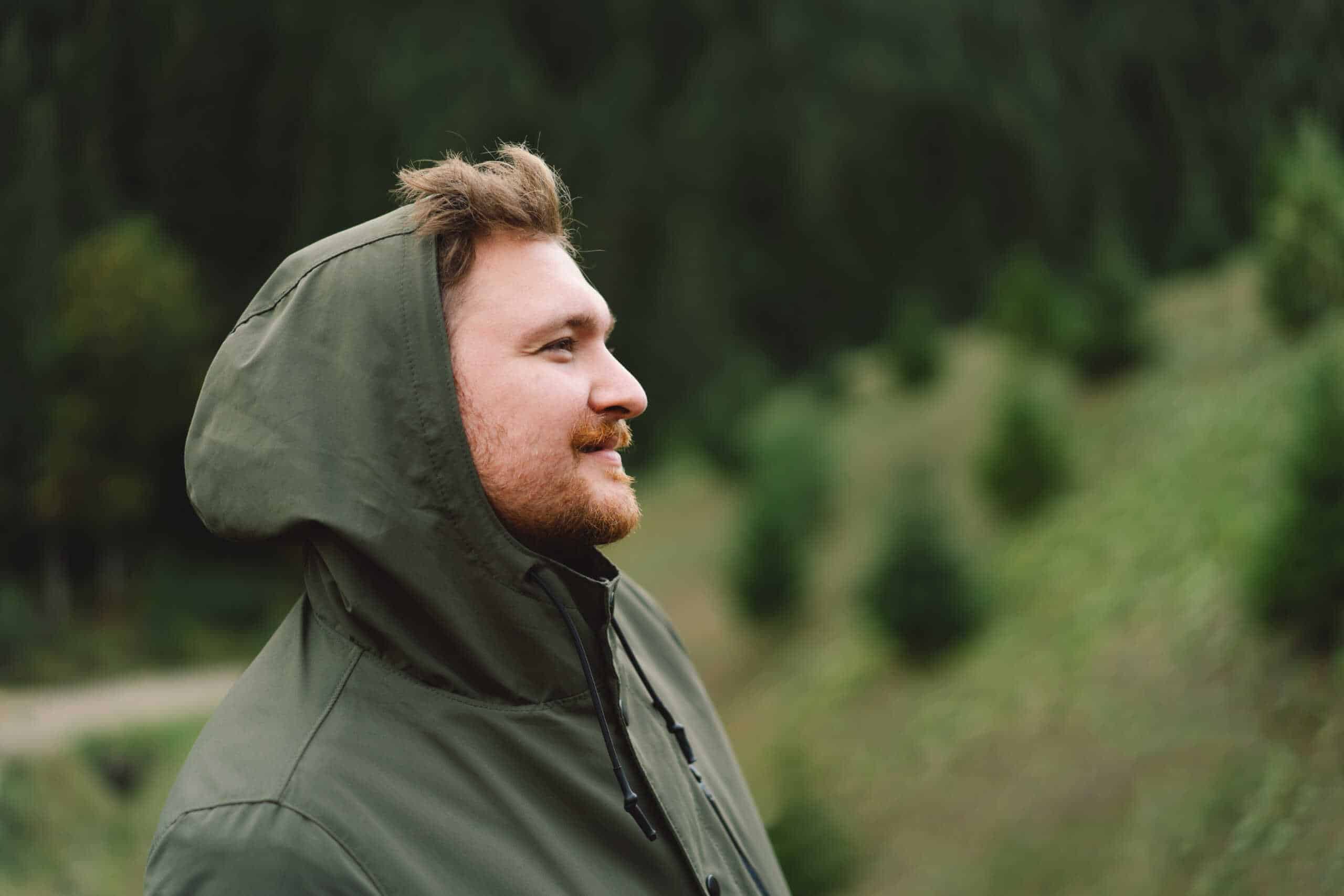Substance use has been on the rise throughout recent years. In 2021, 61.2 million individuals reported that they engaged in the use of a substance. (1) In 2022, 20.4 million individuals were diagnosed with a substance use disorder. (2) With so many individuals experiencing substance use disorders, only 10.3 percent of those individuals received substance use treatment. (3)
Here at Princeton Detox & Recovery Center, we are dedicated to helping reduce the amount of individuals who are impacted negatively by substance use. For those finding it difficult to control their substance use, treatment may be beneficial. Those who have never attended a treatment program may not be aware of the drug rehab treatment process. Princeton Detox & Recovery Center focuses on not only providing comprehensive and evidence-based treatment plans, but also educating each individual on substance use and how it can impact the body and brain. Contact us today to learn more and to get started on your recovery journey.
What Is Drug Rehab?
Drug rehab is the process of combining medical and psychotherapeutic treatment for those experiencing addiction and dependency to alcohol, prescription medications, and other substances such as cannabis, opiates, benzodiazepines, and stimulants.
Drug rehab may be needed if you or a loved one experience any of the following symptoms:
- Continuing to use a substance despite experiencing personal, relational, and occupational consequences.
- Using more of the substance for a longer period of time than intended.
- Experiencing changes in sleeping pattern, or having difficulties falling or staying asleep.
- Unsuccessful attempts to cut back or stop substance use.
- Spending significant amounts of time obtaining, using, and recovering from the effects of substance use.
- Experiencing interpersonal problems due to substance use.
- No longer engaging in hobbies and activities that were enjoyed before substance use.
- Engaging in risky behavior when under the influence of the substance.
- Continuing to engage in substance use despite it exasperating symptoms of a pre-existing medical or mental health issue.
- Developing a physical tolerance or needing more of a substance in order to reach the desired effects.
- Experiencing withdrawal symptoms when substance use is cut back or stopped.
Understanding the Addiction Treatment & Recovery Journey
The addiction treatment process and recovery journey is one that is designed to be individualized for each person seeking treatment. The exact time of treatment depends on the individual, the substance they used, the frequency of use, and the level of clinical distress that the substance has caused them or their loved ones.
Initial Evaluation & Assessment
In order to determine which option would best meet your treatment needs, an initial evaluation and assessment is given. Here at Princeton Detox & Recovery Center, one of our Treatment Advisors will provide you with a complimentary, initial assessment to help customize your treatment plan.
Information that may be gathered during the initial evaluation and assessment include:
- History of substance use
- Family history
- Physical and psychological health history
- Current medications
- History of treatment
We Are Here For You
Let Us Help You Heal
Our Drugs & Alcohol detoxification experience is second to none.
Learn how we can help by speaking with one of our Treatment Advisors today.
Residential Inpatient or Outpatient Care
There are different levels of care that are provided during drug rehab treatment. Each one offers different advantages depending on the needs of the individual.
During a residential inpatient program, individuals reside 24/7 at the facility. This allows for the removal of all distractions and triggers that may interfere with the treatment process. Individuals attending a residential inpatient program follow a structured schedule involving activities such as individual, family, group therapy, and life skills training. Medication management may be included if an individual has been prescribed medications by a psychiatrist to aid with the treatment process.
Outpatient treatment is considered a lower level of care compared to residential inpatient care. During outpatient treatment, an individual resides at their private home and attends therapeutic activities weekly, biweekly, or monthly, depending on their progress. Outpatient care often follows residential inpatient care if the individual is a long-term substance user.
Detoxification Protocols
Detoxification is the process of removing substances from the body. Detox is a crucial part of the drug rehab treatment process and it takes approximately 7-10 days to complete. Detoxing from certain substances can be dangerous if done outside of a treatment facility.
Here at Princeton Detox & Recovery Center, we offer medically supervised detoxification services for the following substances:
- Cocaine, meth and other stimulants
- Marijuana
- Barbiturates and hypnotics
- K2, spice, and other synthetic substances
- Ecstasy
- Hallucinogens
- Inhalants
Medication Management & Detox
Depending on the substance, medication may be used to help alleviate the symptoms that are associated with withdrawal.
Medications that may be used during our detoxification services include:
- Benzo tapers
- Lorazepam
- Diazepam
- Chlordiazepoxide
- Serax
- Suboxone
- Subutex
- Clonidine
Counseling & Therapy Sessions
Counseling is a tool used to help individuals develop adaptive coping strategies and to discuss any aspects of their life that may have contributed to their substance use. Here at Princeton Detox & Recovery Center, therapy sessions are conducted by a licensed clinician. Individuals sit one on one with their counselor and attend individual therapy at least once a week.
Therapeutic modalities utilized during therapy sessions include:
- Cognitive-Behavioral Therapy
- Dialectical Behavioral Therapy
- Eye Movement Desensitization & Reprocessing
- Motivational Interviewing
Group Support Sessions
Group therapy allows for individuals to gain a sense of community and support. Group sessions are conducted by a licensed clinician.
Benefits of group therapy include:
- Improved communication
- Peer-to-peer support
- Recovery skills
Family Involvement
Family therapy allows for the individual attending a drug rehab treatment program, and their family, the opportunity to discuss challenges they may be facing and to improve their communication skills. Here at Princeton Detox & Recovery Center, family therapy is conducted by a licensed family therapist.
Aftercare Planning
Aftercare planning helps the individual develop a clear path following their discharge from a treatment program. Aftercare planning helps provide each individual with the resources needed to continue and maintain their sobriety.
Nutritional Guidance
Substance use can negatively impact an individual’s physical and nutritional health. Our licensed nutritionists can help you develop healthy habits that can help with the recovery process.
Holistic Approaches to Treatment
Holistic approaches focus on one’s mental, social, emotional, and spiritual well-being.
Our holistic treatment options include:
- Yoga Therapy
- Mindfulness & Meditation
- Acupuncture
Spiritual Care Services
Here at Princeton Detox & Recovery we integrate the 12-steps into our treatment programs. The 12-steps are spiritually based and they have been proven to help with the treatment of substance use disorders.
Relapse Prevention Training
Relapse is common, with two-thirds of individuals who receive treatment experiencing it. (4) Here at Princeton Detox & Recovery Center, we offer relapse prevention training to help individuals gain the tools needed to maintain their sobriety throughout their lifetime.
Achieving Long-term Sobriety
Achieving long-term sobriety takes time, discipline, and support. Our goal is for each individual experiencing substance use to be able to reach and maintain their sobriety goals. With the right tools, long-term sobriety is possible.
Our Simple Admissions Process
Princeton Detox & Recovery Center prides itself in providing a straightforward admissions process. Contact us today to speak with one of our Treatment Advisors who will help guide you through the admissions process. A free, no obligation insurance benefits check can be provided upon your request. Contact us today to start your road to recovery.

Reviewed for accuracy by:
Amanda Hilzer M.Ed, CAADC, IADAC, ICCS, LCADC, CCS
Amanda graduated from Lehigh University with both an undergraduate degree in Psychology and a Master’s of Education degree in Counseling Psychology and has worked in the field of substance use disorder treatment and mental health treatment as a counselor and as a clinical manager for over 14 years.


































